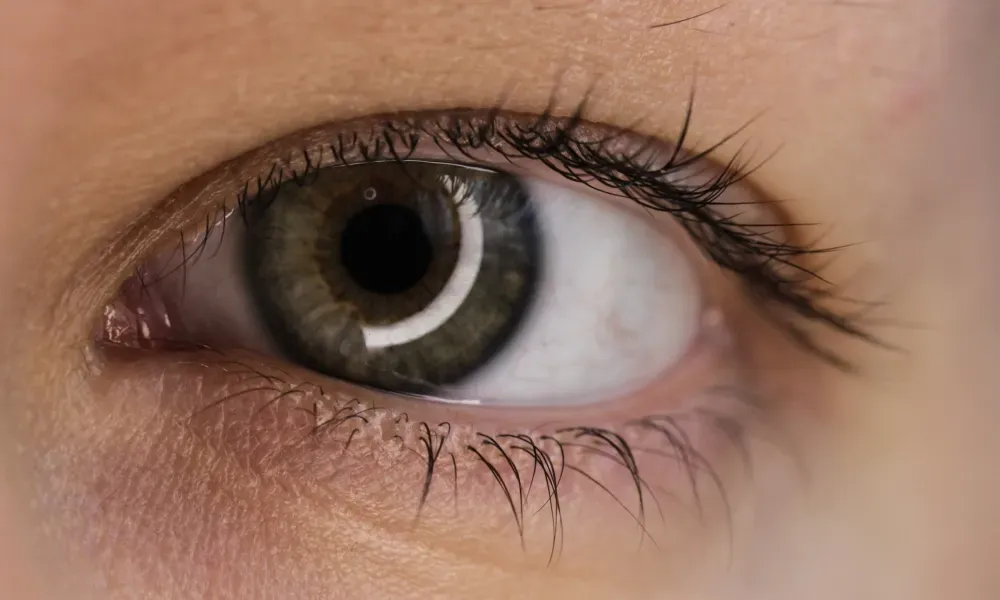Diabetic eye disease is a serious complication of diabetes that can lead to vision impairment and blindness if left unmanaged. The condition includes diabetic retinopathy, diabetic macular edema, cataracts, and glaucoma.
While medical interventions play a crucial role in diabetic eye disease treatment, lifestyle changes are equally important in preserving vision and preventing further damage. Adopting a proactive approach can significantly slow disease progression and enhance overall eye health.
Maintain Optimal Blood Sugar Levels
One of the most important factors in managing diabetic eye disease is maintaining stable blood sugar levels. High blood sugar damages the blood vessels in the retina, leading to diabetic retinopathy and other complications.
Regular monitoring of blood glucose levels, following a diabetes-friendly diet, and adhering to prescribed medications can prevent fluctuations that contribute to eye damage. Incorporating fiber-rich foods, whole grains, lean proteins, and healthy fats while limiting refined sugars and processed foods can help keep blood sugar levels in check.
Control Blood Pressure and Cholesterol
Hypertension and high cholesterol levels can exacerbate diabetic eye disease by contributing to blood vessel damage in the eyes. Keeping blood pressure and cholesterol levels within a healthy range can prevent further complications.
Regular exercise, a heart-healthy diet, and medications prescribed by a doctor can effectively control these risk factors. Reducing sodium intake, avoiding trans fats, and increasing the consumption of fruits and vegetables can support overall cardiovascular and ocular health.
Adopt a Nutrient-Rich Diet for Eye Health
Certain nutrients play a vital role in maintaining eye health and slowing the progression of diabetic eye disease. Antioxidants, vitamins, and minerals help protect the retina and reduce inflammation.
Including leafy green vegetables, citrus fruits, nuts, and fatty fish in the diet ensures an adequate intake of essential nutrients like vitamin C, vitamin E, zinc, and omega-3 fatty acids. Lutein and zeaxanthin, found in kale, spinach, and eggs, have been shown to improve retinal health and reduce the risk of vision loss.
Maintain a Healthy Weight
Obesity is a risk factor for both diabetes and its complications, including diabetic eye disease. Excess weight can worsen insulin resistance and contribute to high blood sugar levels. Adopting a balanced diet and engaging in regular physical activity can aid in weight management and reduce the burden on the eyes. Even a modest weight loss can lead to significant improvements in blood sugar control and overall health.
Engage in Regular Physical Activity
Exercise is essential for managing diabetes and reducing the risk of diabetic eye disease progression. Physical activity improves insulin sensitivity, lowers blood pressure, and enhances circulation, all of which contribute to better eye health.
Engaging in at least 150 minutes of moderate-intensity exercise per week, such as walking, swimming, or cycling, can support diabetes management. However, individuals with advanced diabetic eye disease should consult their doctor before engaging in high-impact activities.
Quit Smoking and Limit Alcohol Consumption
Smoking significantly increases the risk of diabetic eye disease by causing inflammation, reducing oxygen supply to the eyes, and accelerating blood vessel damage. Quitting smoking can greatly reduce the likelihood of severe vision problems.
Additionally, excessive alcohol consumption can contribute to blood sugar fluctuations and increase the risk of diabetic complications. Limiting alcohol intake or avoiding it altogether can support overall diabetes management and eye health.
Schedule Regular Eye Exams
Routine eye examinations are crucial for detecting early signs of diabetic eye disease and preventing severe vision loss. Individuals with diabetes should undergo comprehensive eye exams at least once a year or more frequently if recommended by their ophthalmologist. Early detection allows for timely interventions, including laser therapy, injections, or other diabetic eye disease treatment options, to prevent disease progression.
Manage Stress and Get Sufficient Sleep
Chronic stress and poor sleep can negatively impact blood sugar levels and contribute to inflammation, increasing the risk of diabetic complications. Stress management techniques such as meditation, deep breathing exercises, and yoga can help keep stress levels under control. Additionally, prioritizing quality sleep by maintaining a regular sleep schedule and creating a relaxing bedtime routine can support overall health and diabetes management.
Protect Your Eyes from Harmful Exposure
Exposure to excessive sunlight and blue light from digital screens can strain the eyes and potentially worsen diabetic eye disease. Wearing UV-protective sunglasses outdoors and taking regular breaks from screen time can help reduce eye strain. Proper lighting while reading or using electronic devices can also minimize discomfort and protect retinal health.
Conclusion
While diabetic eye disease can be a serious complication, adopting lifestyle changes can play a significant role in controlling its progression and preserving vision. Managing blood sugar, blood pressure, and cholesterol, maintaining a healthy diet and weight, engaging in regular physical activity, and quitting smoking are essential steps.
Additionally, scheduling regular eye exams and managing stress can further contribute to overall eye health. Incorporating these lifestyle modifications alongside diabetic eye disease treatment can optimize long-term visual outcomes and enhance overall quality of life.



